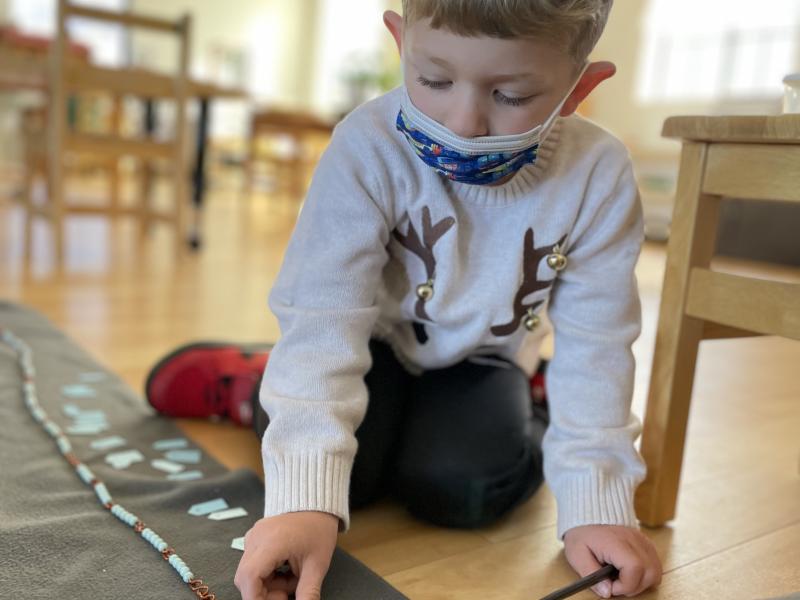But the Montessori Method is over 100 years old!
Should we, as educators and parents, be following a method that was created over 100 years ago? Haven't times changed, and therefore so should our approach to education? No! The reason why Montessori is still applicable and functional to today's children lies within the pillars on which Montessori stands. The objective of the primary classroom is to foster independence within the child so that he or she may fluidly adapt to their culture. This is also why the Montessori method is international. The practical life area is different all over the world, according to the customs of that culture. For example, here in San Diego, we give lessons on how to appropriately apply sunscreen, as it is an almost daily procedure. This would not be useful for a class in say, Portland.
Beyond cultural adaptation, Maria Montessori spoke of the importance of physical and psychological development. Physically all Montessori Materials are concrete in nature, involving movement in their manipulation. There is a link between physically moving and the depth to which that concept is understood. Montessori also believed strongly in the child interacting with nature. The indoor/outdoor flow of the Montessori classroom is so special and unique, allowing the child to connect to our environment.
Love has always been at the heart of Montessori. Respect for children as individuals is what sets Montessori apart, believing that the child is ultimately in control of their path. Feeling loved and welcomed in the world builds confidence. Sometimes love means setting boundaries so that the child can indeed find their inner voice. It can be difficult to be firm, but every interaction with the children is always based in love.
Here are the following human tendencies that may be helpful for you to notice in your child: Order (organization), orientation, exploration and curiosity, communication, work and concentration, movement/activity/manipulation, repetition, exactness and calculation, abstraction, and imagination and, self-perfection.
Ms. Katie, Firefly Teacher


